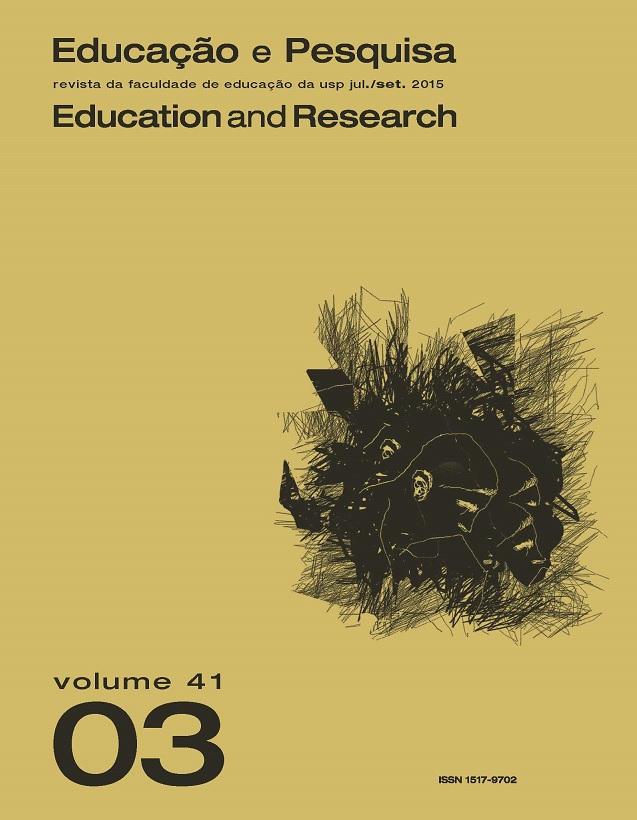A formação de conceitos em adultos não escolarizados
DOI:
https://doi.org/10.1590/S1517-9702201507130507Resumen
Neste trabalho, objetivou-se identificar o nível de abstração presente nos conceitos formulados por adultos não escolarizados que vivem em sociedades letradas. A amostra foi selecionada por conveniência e contou com quarenta adultos não escolarizados (analfabetos e semianalfabetos). Os dados foram coletados por meio da aplicação de instrumento sobre formação de conceitos, e analisados a partir da categorização proposta pelos autores. De acordo com essa categorização, os conceitos podem ser cotidianos ou científicos. Nos conceitos cotidianos, as palavras codificam informações com base nos atributos perceptíveis dos objetos aos quais se referem. Nos conceitos científicos, elas codificam informações com base em aspectos abstratos, não perceptíveis, dos objetos. Para Vigotski, um dos principais objetivos do processo de escolarização é possibilitar a passagem da formulação conceitual cotidiana para a científica. Este estudo investigou a possibilidade de desenvolvimento de uma estrutura conceitual científica fora da escola por adultos não escolarizados que residem em centros urbanos. Os resultados, após a análise das respostas, indicaram que, apesar de alguns desses adultos terem formulado conceitos científicos, predominou em suas respostas um padrão conceitual cotidiano. A partir desses resultados, concluiu-se que, por conta da atual institucionalização, na escola, do treinamento em operações teóricas, o contexto escolar ainda aparece como o mais privilegiado para propiciar esse tipo de desenvolvimento.Descargas
Los datos de descarga aún no están disponibles.
Descargas
Publicado
2015-09-01
Número
Sección
Artículos
Licencia
Los conceptos emitidos en los artículos son de exclusiva responsabilidad de sus autores y no reflejan necesariamente la opinión de la redacción.
Está permitida la reproducción total o parcial de los trabajos, siempre y cuando se indique explícitamente la fuente.
Cómo citar
A formação de conceitos em adultos não escolarizados . (2015). Educação E Pesquisa, 41(3), 647-662. https://doi.org/10.1590/S1517-9702201507130507



